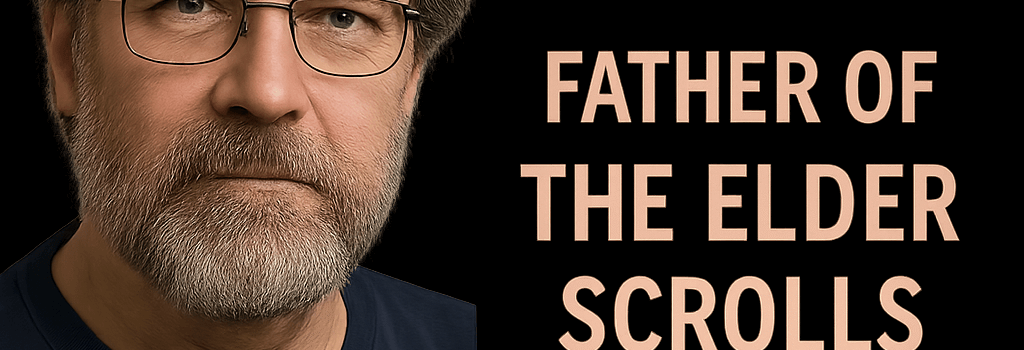Julian LeFay, Father of The Elder Scrolls, Dies at 59

Julian LeFay, renowned as the visionary Technical Director behind the earliest Elder Scrolls titles and hailed by many as the father of modern open-world RPGs, passed away at the age of 59. His co-founders at Once Lost Games confirmed the loss via a poignant post on Bluesky, noting his years-long battle with cancer and unwavering dedication to game development.
Open-World Innovation and Technical Pioneering
Throughout the 1990s, LeFay’s engineering prowess set new standards in procedural world generation, mod support, and data-driven design. He architected core systems for memory-constrained environments, enabling sprawling environments on DOS machines with just 640KB of conventional RAM and basic 386 processors.
Early Career and Technical Achievements
- Sword of Sodan (Amiga, 1988): Composed adaptive MIDI-style music engine.
- Where’s Waldo (NES, 1991): Lead programmer, optimized tile rendering for 2K of VRAM.
- Wayne Gretzky Hockey (DOS, 1988): Physics and AI routines for real-time sports simulation.
- Dragon’s Lair (DOS port, 1991): Implemented codec for full-motion video playback on PC speaker sound and EGA graphics.
- Terminator franchise games: DOS titles featuring custom scripting engines for branching narratives.
Arena and Daggerfall: Engine and Design
Joining Bethesda Softworks alongside Ted Peterson and Vijay Lakshman, LeFay co-designed The Elder Scrolls: Arena (1994) and Daggerfall (1996). His innovations included:
- Procedural Terrain Streaming: Dynamic loading of 16×16 tile chunks to maximize world size within 4MB of RAM.
- Data-Driven NPC AI: A lightweight state machine for quest and faction interactions.
- Mod File Formats: Early archive system allowing community expansion and custom content.
- Ambient Audio Engine: FM synthesis and WAV streaming for immersive soundscapes.
Contributions to Modern RPG Architecture
Even after leaving Bethesda in 1998, LeFay consulted on Morrowind (2002), advising on the nascent scripting language that eventually evolved into Papyrus. His focus on modularity and ease of extension remains at the core of contemporary game engines.
The Wayward Realms: A Spiritual Successor
In 2019, LeFay reunited with Peterson and Lakshman to launch Once Lost Games and fund The Wayward Realms via Kickstarter. According to the studio’s 2024 technical update:
- Rendering Pipeline: Vulkan backend with support for AMD FidelityFX Super Resolution and NVIDIA DLSS.
- Entity Component System: Multithreaded world simulation managing 10,000+ NPCs and dynamic ecosystems.
- Cross-Platform Deployment: Windows, macOS, Linux builds built via Jenkins CI/CD pipeline on AWS Graviton instances.
- Procedural Story Generation: AI-assisted narrative nodes ensuring emergent quest lines.
LeFay’s final contributions included mentoring the team on memory budgeting and plugin API design, ensuring the project remained faithful to the spirit of the original Elder Scrolls engine while embracing modern hardware.
Industry Impact and Expert Opinions
“Julian’s work on streaming massive worlds with limited resources directly influenced how we approach open-world performance today,” said Todd Howard, Bethesda’s Executive Producer. “His engine laid the groundwork for everything that followed.”
“He was a philosopher of code,” noted AI researcher and game designer Riana Patel. “His emphasis on data-driven systems resonates in today’s procedural generation and AI-driven content tools.”
Legacy and Future Directions
- Open-World Optimization: New engines continue refining his tile-streaming and LOD techniques.
- Procedural Generation: Next-gen NPC ecosystems and emergent narratives build on his early frameworks.
- Modding Community: The file-based plugin architecture he pioneered remains a template for extensible game design.
- Mentorship and Education: His published notes on memory management are cited in game development curricula.
Julian LeFay’s passing marks the end of an era in RPG history, but his technical innovations and mentorship continue to inspire developers worldwide. Once Lost Games affirmed that work on The Wayward Realms will honor his vision, carrying forward his legacy of creativity and engineering excellence.